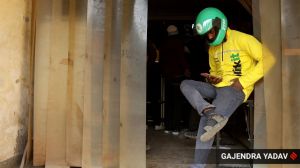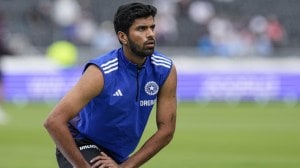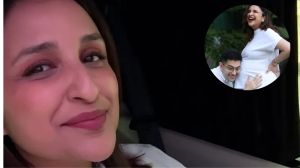Holy learnings
As the evening fades, a lively incantation fills the environs of the Madrasa Jamaitul Kuraish at Camp, Pune. Groups of 950 children enthu...

As the evening fades, a lively incantation fills the environs of the Madrasa Jamaitul Kuraish at Camp, Pune. Groups of 950 children enthusiastically recite the holy Quran, word by word, each in their different stages of learning. For, according to the dictats of Islam, it is the duty of every follower of Islam to learn to read the holy Quran. Says Abdul Rahim Memon, head of the Madrasa Jamaitul Kuraish, 8220;The Quran teaches you not only the manner in which the namaz is done but also how to live your life. It is therefore essential to learn to read the Quran. Classes have to be held because the holy book is written in Arabic.8221;
The Madrasa Jamaitul Kuraish is the oldest and first of its kind in Maharashtra. Established by the Jamaitul Kuraish trustees on July 25, 1958 in the premises of the Jamaitul Kuraish mosque with only 25 students, the Madrasa has been conducting classes for children between the age group of four and 13. There are four parts of study and 30 paras or chapters before the child masters the art of reading the Quran.
The children are instructed through an oral tradition. Mondays and Thursdays are days for moral instruction. Adds Memon, 8220;The children are taught desirable forms of behaviour vis-a-vis their elders. They are taught ways to lead their lives in keeping with the religious teachings. Every week the children are given two questions that have to be answered by the parents. This is to see if the parents are aware of the teachings of the Holy Quran. The children are encouraged to speak what they learn in the presence of their family.8221;
The Madrasa functions like any other school. It has strict attendance and discipline and tests to evaluate the learning levels of the students. Memon claims that a lot of parents are uneducated and take any form of discipline enforcement to heart. Many a time parents just walk in and beat the teacher. 8220;A number of our teachers have left because of this but we are still going on. We have managed to tone down the aggressiveness of these parents. We are open to dialogue and encourage suggestions from parents,8221; he says.
The teachers or mudaris as they are called are usually well-versed in the Quran and may be past students of the Madrasa. There are no female teachers save a lady who comes to instruct the older girls once a week. There are separate classes for boys and girls and some are co-educational.
Memon, who has seen the Madrasa through since its inception, reminisces, 8220;In those days we charged only 10, 15 and 25 paise per week for the different levels. Today it is Rs 5 per month. Our number has been increasing every year and we have admissions twice a year with quite a long waiting list. This is not just a place for learning. It is also a community support system. People come here if there is any insecurity or threat. We discuss and tell them what to do. Students can also talk to their teachers if there are any conflicts in their school.8221;
Says a parent, 8220;Schools these days seem to focus more on computers and martial arts and things like that. There is no separate institution as regards religion, morals and values. This is one place my child can learn how to be a good human being first.8221;
- 01
- 02
- 03
- 04
- 05































